Workshop on Digital Currency Economics and Policy

The proceedings can be downloaded here.
2018
1 Expo Drive, Singapore 486150
2018
10 Shenton Way, MAS Building Singapore 079117
Professor Kenneth Rogoff, Thomas D. Cabot Professor of Public Policy, Professor of Economics, Harvard University
Professor Barry Eichengreen, George C. Pardee and Helen N. Pardee Professor of Economics and Political Science, University of California, Berkeley
Commentator:
Professor Randall Morck, Stephen A. Jarislowsky Distinguished Chair in Finance, University of Alberta
Chair:
Dr Taimur Baig, Managing Director and Chief Economist, DBS Group Research, DBS Bank
Professor Markus K. Brunnermeier, Edwards S. Sanford Professor of Economics and Director of the Bendheim Center for Finance, Princeton University
Co-author:
Professor Dirk F. Niepelt, Director, Study Center Gerzensee, Foundation of the Swiss National Bank and Associate Professor, University of Bern
Commentator:
Professor Danny Quah, Dean and Li Ka Shing Professor in Economics, Lee Kuan Yew School of Public Policy, National University of Singapore
Chair:
Professor Sumit Agarwal, Head of Finance Department and Low Tuck Kwong Distinguished Professor, National University of Singapore
Commentator:
Professor Andrew Rose, B.T. Rocca Jr. Chair in International Business and Trade, Haas School of Business, University of California, Berkeley
Chair:
Professor Antonio Fatas, Portuguese Council Chaired Professor of European Studies and Professor of Economics, INSEAD
2018
10 Shenton Way, MAS Building Singapore 079117
Mr Robleh Ali, Research Scientist, Digital Currency Initiative, MIT Media Lab
Commentator:
Dr Prateek Saxena, Dean’s Chair Assistant Professor at School of Computing, National University of Singapore
Chair:
Professor Joseph Cherian, Director of Centre for Asset Management Research & Investments (CAMRI) and Professor of Finance, National University of Singapore
Co-authors:
Dr Max Raskin, Research Fellow, Institute for Judicial Administration, New York University School of Law
Professor Fahad Saleh, Assistant Professor of Finance, McGill University
Commentator:
Professor Gur Huberman, Robert G. Kirby Professor of Behavioural Finance, Business School, Columbia University
Chair:
Professor Lim Kian Guan, Vice Provost on Undergraduate Matters, OUB Chair Professor of Finance, Singapore Management University
Dr Agustín Carstens, General Manager, Bank for International Settlements
Ms Cecilia Skingsley, Deputy Governor, Sveriges Riksbank
Moderator:
Mr Ravi Menon, Managing Director, Monetary Authority of Singapore
Commentator:
Professor Beatrice Weder di Mauro, President of CEPR; Research Professor of INSEAD and Distinguished Fellow-in-residence, Emerging Markets Institute of INSEAD
Chair:
Professor Bernard Yeung, Dean and Stephen Riady Distinguished Professor in Finance and Strategic Management, National University of Singapore
Program is subjected to change. Updated 8 Nov 2018.
Speakers & Commentators
-
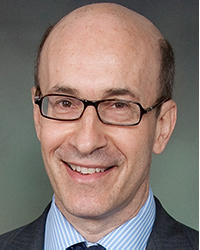
Professor Kenneth Rogoff
Thomas D. Cabot Professor at Harvard University
Kenneth Rogoff is Thomas D. Cabot Professor at Harvard University. From 2001–2003, Rogoff served as Chief Economist at the International Monetary Fund.
His widely-cited 2009 book with Carmen Reinhart, This Time Is Different: Eight Centuries of Financial Folly, shows the remarkable quantitative similarities across time and countries in the run-up and the aftermath of severe financial crises. Rogoff is also known for his seminal work on exchange rates and on central bank independence. Together with Maurice Obstfeld, he is co-author of Foundations of International Macroeconomics, a treatise that has also become a widely-used graduate text in the field worldwide. Rogoff’s 2016 book The Curse of Cash looks at the past, present and future of currency from standardized coinage to crypto-currencies and central bank digital currencies. The book argues that although much of modern macroeconomics abstracts from the nature of currency, it is in fact lies at the heart of some of the most fundamental problems in monetary policy and public finance. His monthly syndicated column on global economic issues is published in over 50 countries.
Rogoff is an elected member of the National Academy of Sciences, the American Academy of Arts and Sciences, and the Group of Thirty, and He is a senior fellow at the Council on Foreign Relations. Rogoff is among the top ten on RePEc’s ranking of economists by scholarly citations. He is also an international grandmaster of chess. -
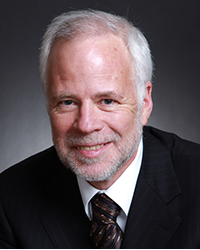
Professor Barry Eichengreen
George C. Pardee and Helen N. Pardee Professor of Economics and Professor of Political Science at the University of California, Berkeley
Barry Eichengreen is the George C. Pardee and Helen N. Pardee Professor of Economics and Professor of Political Science at the University of California, Berkeley, where he has taught since 1987. He is a Research Associate of the National Bureau of Economic Research (Cambridge, Massachusetts) and Research Fellow of the Centre for Economic Policy Research (London, England). In 1997-98 he was Senior Policy Advisor at the International Monetary Fund. He is a fellow of the American Academy of Arts and Sciences (class of 1997).
Professor Eichengreen is the convener of the Bellagio Group of academics and economic officials. He has held Guggenheim and Fulbright Fellowships and has been a fellow of the Center for Advanced Study in the Behavioral Sciences (Palo Alto) and the Institute for Advanced Study (Berlin). He is a regular monthly columnist for Project Syndicate.
His most recent books are The Populist Temptation: Economic Grievance and Political Reaction in the Modern Era (Oxford University Press, 2018), How Global Currencies Work: Past, Present, and Future with Livia Chitu and Arnaud Mehl (November 2017), The Korean Economy: From a Miraculous Past to a Sustainable Future with Wonhyuk Lim, Yung Chul Park and Dwight H. Perkins (March 2015), Renminbi Internationalization: Achievements, Prospects, and Challenges, with Masahiro Kawai (February 2015), Hall of Mirrors: The Great Depression, The Great Recession, and the Uses--and Misuses--of History (January 2015), From Miracle to Maturity: The Growth of the Korean Economy with Dwight H. Perkins and Kwanho Shin (2012) and Exorbitant Privilege: The Rise and Fall of the Dollar and the Future of the International Monetary System (2011) (shortlisted for the Financial Times and Goldman Sachs Business Book of the Year Award in 2011).
Professor Eichengreen was awarded the Economic History Association's Jonathan R.T. Hughes Prize for Excellence in Teaching in 2002 and the University of California at Berkeley Social Science Division's Distinguished Teaching Award in 2004. He is the recipient of a doctor honoris causa from the American University in Paris, and the 2010 recipient of the Schumpeter Prize from the International Schumpeter Society. He was named one of Foreign Policy Magazine’s 100 Leading Global Thinkers in 2011. He is a past president of the Economic History Association (2010-11 academic year). -
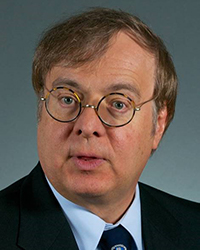
Professor Randall Morck
Stephen A. Jarislowsky Distinguished Chair in Finance, University of Alberta
Randall Morck holds the Stephen A. Jarislowsky Distinguished Chair in Finance and a Distinguished University Professorship at the University of Alberta’s Alberta School of Business. He earned an honors B.Sc. summa cum laude in applied mathematics and economics at Yale and a Ph.D. in economics at Harvard. He returns periodically to both almae matres – most recently as William Lyon Mackenzie King Visiting Professor at Harvard in 2005 and as Schoen Visiting Professor of Finance at Yale in 2009.Prof. Morck is a Senior Fellow and Vice President of the Asian Bureau of Financial and Economics Research, Research Associate with the National Bureau of Economic Research, Research Associate with the European Corporate Governance Institute, Senior Research Associate in Harvard Law School’s Labor and Worklife Program, and Inaugural Fellow with the International Corporate Governance Society. Google Scholar records almost 36,000 citations to his over 100 research articles, and the Social Sciences Research Network ranks him the 54th most highly cited of 8,000 economics author worldwide. His articles appear in leading research journals including the American Economic Review, Journal of Finance, Review of Financial Studies, and Journal of Financial Economics, in which two won “citations all-star award”. In recent years he has spoken at Brown, Cambridge, Colombia, Cornell, Dartmouth, Harvard, HEC, LSE, MIT, New York University, Princeton, Stanford, the University of California at Berkeley, Yale, and other leading research universities. He is a frequent speaker at conferences in North America and abroad and has advised a number of governments as well as the IMF and World Bank.
-
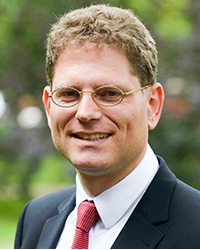
Professor Markus K. Brunnermeier
Edwards S. Sanford Professor of Economics and Director of the Bendheim Center for Finance, Princeton University
Markus K. Brunnermeier is the Edwards S. Sanford Professor at Princeton University. He is a faculty member of the Department of Economics and director of Princeton's Bendheim Center for Finance. He is also a research associate at NBER, CEPR, and CESifo and a member of the Bellagio Group on the International Economy. He is a Sloan Research Fellow, Fellow of the Econometric Society, Guggenheim Fellow and the recipient of the Bernácer Prize granted for outstanding contributions in the fields of macroeconomics and finance. He is/was a member of several advisory groups, including to the IMF, the Federal Reserve of New York, the European Systemic Risk Board, the Bundesbank and the U.S. Congressional Budget Office. Brunnermeier was awarded his Ph.D. by the London School of Economics (LSE).
His research focuses on international financial markets and the macroeconomy with special emphasis on bubbles, liquidity, financial and monetary price stability. To explore these topics, his models incorporate frictions as well as behavioral elements. He has been awarded several best paper prizes and served on the editorial boards of several leading economics and finance journals. He has tried to establish the concepts: liquidity spirals, CoVaR as co-risk measure, the Volatility Paradox, Paradox of Prudence, ESBies, financial dominance and the redistributive monetary policy. His recent book is titled "The Euro and the Battle of Ideas". -

Professor Danny Quah
Dean and Li Ka Shing Professor in Economics, Lee Kuan Yew School of Public Policy, National University of Singapore
Danny Quah is Dean and Li Ka Shing Professor in Economics at the School. His research interests include income inequality, economic growth, and international economic relations. Quah's current research takes an economic approach to world order - with focus on global power shift and the rise of the east, and alternative models of global power relations.
Quah is Commissioner on the Spence-Stiglitz Commission on Global Economic Transformation; Member, Executive Committee, International Economic Association; and Senior Fellow, Asian Bureau of Finance and Economics Research.
Quah gave the third LSE-NUS lecture in 2013, TEDx talks in 2016, 2014, and 2012, and the Inaugural LSE Big Questions Lecture in 2011. His blog is regularly named one of the top 100 Economics blogs in the world (2016, 2017a, 2017b) Quah’s research has been supported by the Khazanah Research Institute, the John D. and Catherine T. MacArthur Foundation, the British Academy, the UK’s Economic and Research Council, and the Andrew Mellon Foundation.
Quah was previously Assistant Professor of Economics at MIT, and then Professor of Economics and International Development, and Director of the Saw Swee Hock Southeast Asia Centre at LSE. He served as LSE’s Head of Department for Economics, and Council Member on Malaysia’s National Economic Advisory Council.
Quah studied at Princeton, Minnesota, and Harvard. -

Professor Charles Engel
Donald Hester Professor of Economics at the University of Wisconsin – Madison
Charles Engel is the Donald Hester Professor of Economics at the University of Wisconsin – Madison, which he joined in 2000. He has previously held positions at the University of Washington and the University of Virginia. He earned his Ph.D. from University of California, Berkeley, and his B.A. from University of North Carolina – Chapel Hill.
He is a Research Associate for the National Bureau of Economic Research; a Research Affiliate at the Research Centre for International Economics, City University of Hong Kong; a member of the Advisory Board, Center for Applied Macroeconomic Analysis (Australia and New Zealand); an International Research Fellow, Kiel Institute, Kiel, Germany; on the Council of Advisers, Hong Kong Institute for Monetary Research; a member of the CESifo Research Network; serves on the BIS Advisory Panel and is a consultant at the Federal Reserve Bank of Chicago.
He was Editor from 2001-2017 of the Journal of International Economics, the leading academic journal in the field of international economics.
He has frequently been a Visiting Scholar at the Federal Reserve Board, the International Monetary Fund, the European Central Bank, the Bank for International Settlements, and central banks in several countries including England, France, the Netherlands, Hong Kong, Singapore, Serbia, Uruguay, and Chile. He is regularly a Visiting Scholar at several of the regional Federal Reserve Banks.
He has published articles in the American Economic Review, the Journal of Political Economy, the Review of Economic Studies, the Journal of Monetary Economics, the Journal of International Economics and other publications. -

Professor Andrew K. Rose
B.T. Rocca Jr. Professor of International Business, Haas School of Business, University of California, Berkeley
Exco Member & Senior Fellow, Asian Bureau of Finance and Economic Research (ABFER)Andrew K. Rose is the B.T. Rocca Jr. Professor of International Business in the Economic Analysis and Policy Group, Haas School of Business at the University of California, Berkeley. He is also a Research Associate of the National Bureau of Economic Research (based in Cambridge, MA), a Research Fellow of the Centre for Economic Policy Research (based inLondon, England), and a Senior Fellow of the Asian Bureau of Finance and Economic Research (based in Singapore). He received his Ph.D. from the Massachusetts Institute of Technology, his M.Phil. from Nuffield College, University of Oxford, and his B.A. from Trinity College, University of Toronto.
Rose has published over one hundred and fifty papers and over ninety articles in refereed economics journals, including the American Economic Review, the Quarterly Journal of Economics, the Review of Economic Studies, and the Journal of Finance. His research addresses issues in international trade, finance, and macroeconomics, and has received more than 40,000 citations. His teaching is in the areas of international macroeconomics; he has won two teaching awards.
Rose served as Associate Dean for Academic Affairs and Chair of the Faculty 2010-2016, and was the managing editor of The Journal of International Economics 1995-2001. He and the founding director of the Clausen Center for International Business and Policy at Haas and the Risk Management Institute at the National University of Singapore. He has organized over fifty academic conferences.
Rose is interested in the theory and practice of economic policy, and most of his work is applied and driven by "real world" international phenomena. A citizen of three countries, he has worked on six continents and at a number of international economic agencies, including: the International Monetary Fund, the World Bank, and the Asian Development Bank. He has also worked at a number of national agencies, including: the US Department of Treasury, HM Treasury (UK), the Canadian Department of Finance; and the central banks of: Australia, Canada, England, Europe, Hong Kong, Israel, Italy, Japan, Netherlands, New Zealand, Singapore, Spain, and the United States. He has visited a number of other universities, including Cape Town, EUI, FUB, INSEAD, London School of Economics, Melbourne, NUS, Princeton, SHUFE, SMU, Stockholm, Tel Aviv, Tsinghua, ULB, and Victoria. -
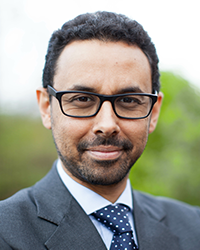
Mr Robleh Ali
Research Scientist, Digital Currency Initiative, MIT Media Lab
Robleh Ali is a research scientist at the MIT Media Lab's Digital Currency Initiative. His main focus is on how national currencies can be issued digitally outside the existing banking system and the role of central banks in such a system. The overall aim of the work is fundamentally reforming the financial system by changing the way money is issued. He previously led the research into central bank issued digital currency at the Bank of England.
-

Dr Prateek Saxena
Dean’s Chair Assistant Professor at School of Computing, National University of Singapore
Prateek Saxena is the Dean’s Chair Assistant Professor at School of Computing. He oversees the efforts of a 15-person security research lab at NUS focused on computer security. Prateek’s recent research interests lie in blockchains, hardware-rooted security, secure languages and formal methods. He has authored over 50 papers in computer security and programming languages. Prateek has co-founded Anquan Capital and Zilliqa Research, two highly valued startups from NUS based on his research on blockchains. He advises companies such as Kyber Network and Dexecure which are spin-offs from his NUS research lab.
Prateek’s prior work led to the design of the Google Chrome Add-on platforms, script injection defenses deployed in the Google Closure Compiler framework, Dropbox’s web sandboxing infrastructure and at Microsoft Research. Prateek completed his PhD at the University of California at Berkeley prior to joining NUS. He has received the MIT TR35 Top 10 Innovators in Asia Under 35 (2017), the Young Research Award at NUS (2017), the Sakrison Memorial Award for outstanding dissertation work at Berkeley (2012), the AT&T Best Applied Security Paper Award (2010), and several other best paper awards. He serves on the technical program committees of prestigious academic conferences such as IEEE S&P and Usenix Security. -
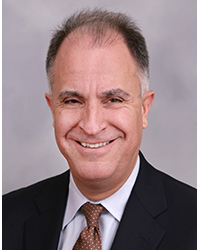
Professor David Yermack
Albert Fingerhut Professor of Finance and Business Transformation, Chairman of the Finance Department at New York University Stern School of Business, Adjunct Professor of Law at the NYU School of Law, Director of the NYU Pollack Center for Law and Business, New York University
David Yermack is the Albert Fingerhut Professor of Finance and Business Transformation and Chairman of the Finance Department at New York University’s Stern School of Business, where he has been a member of the faculty since 1994. He is also an Adjunct Professor of Law at the NYU School of Law, Director of the NYU Pollack Center for Law and Business, and a Research Associate of the NBER Law and Economics program.
In 2014 Prof. Yermack began teaching a full semester course at NYU on Digital Currency and Blockchains with his Law School colleague Prof. Geoffrey Miller. The course was the first in the world on this topic taught at a major research university, and it now draws more than 200 students annually. NYU Stern launched a FinTech MBA specialization in 2016. and this program will offer more than 12 FinTech courses in an interdisciplinary joint venture between its Finance and Information Systems departments this year.
In addition to his recent research on blockchains and digital currencies, Professor Yermack has published some of the most cited papers in the fields of executive compensation and corporate governance. He has also written papers on such diverse topics as options in baseball player contracts, incentive compensation for clergymen, tobacco litigation, fraudulent charitable contributions, CEOs’ mansions, and the fashion industry. Professor Yermack was awarded AB (1995), MBA (1991), JD (1991), AM (1993) and PhD (1994) degrees, all from Harvard University. He has been appointed as a visiting professor at 12 international universities, a visiting scholar at the Federal Reserve Banks of New York and Philadelphia, and has given invited research seminars at more than 100 universities and institutes worldwide. -
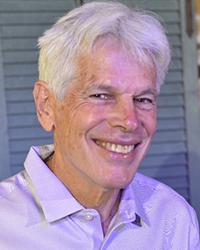
Professor Gur Huberman
Robert G. Kirby Professor of Behavioral Finance at Columbia Business School
Gur Huberman is Robert G. Kirby Professor of Behavioral Finance at Columbia Business School where he has taught since 1989. Prior to that, he taught at Tel Aviv University and at the University of Chicago. Between 1993 and 1995 he was Vice President at JP Morgan Investment Management responsible for research on quantitative equity trading. In that capacity he also helped develop tax aware strategies for the private bank. He earned his PhD (with distinction) in operations research from Yale in 1980 and his B.Sc. (cum laude) in mathematics from Tel Aviv University in 1975.
Professor Huberman’s published work is widely read and cited; and covers a broad range in finance and economics. He contributed to the theory of equilibrium return-risk tradeoff, to the theory of contracts, to the study of individual’s portfolio selection, especially in the context of retirement savings to the theory of liquidity and trading, and to Behavior Finance. More recently he has turned his attention to FinTech and cryptocurrencies and has co-authored “Monopoly Without a Monopolist: An Economic Analysis of the Bitcoin Payment System.”
Professor Huberman was a founding managing editor of the International Journal of Theoretical and Applied Finance. His co-authored paper won the 2006 Journal of Finance Distinguished Paper award of the Smith-Breeden Prize. He was a member of the Academic Advisory Board of Morgan Stanley Equity Market Microstructure Research. -
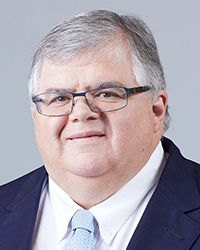
Dr Agustín Carstens
General Manager, Bank for International Settlements
Agustín Carstens became General Manager of the BIS on 1 December 2017.
Mr Carstens was Governor of the Bank of Mexico from 2010 to 2017. A member of the BIS Board from 2011 to 2017, he was chair of the Global Economy Meeting and the Economic Consultative Council from 2013 until 2017. He also chaired the International Monetary and Financial Committee, the IMF's policy advisory committee from 2015 to 2017.
Mr Carstens began his career in 1980 at the Bank of Mexico. From 1999 to 2000, he was Executive Director at the IMF. He later served as Mexico's deputy finance minister (2000-03) and as Deputy Managing Director at the IMF (2003-06). He was Mexico's finance minister from 2006 to 2009.
Mr Carstens has been a member of the Financial Stability Board since 2010 and is a member of the Group of Thirty.
Mr Carstens holds an MA and a PhD in economics from the University of Chicago.
-
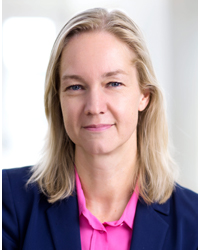
Ms Cecilia Skingsley
Deputy Governor of the Swedish Riksbank
Cecilia Skingsley took up the post of Deputy Governor of the Swedish Riksbank in May 2013 with a term of office of six years. She represents the Riksbank on the Committee on the Global Financial System (CGFS) and on the Euro Retail Payments Board (ERPB). She is also the Governor of the Riksbank’s alternative on the Board of Directors of the BIS and chairs the retail payments council. In October 2016, Ms Skingsley was appointed to co-chair the World Economic Forum’s working group Global Future Council on the Future of Financial and Monetary Systems. Ms Skingsley has a BSc in economics and a financial analyst diploma.She was previously chief economist at Swedbank and has also worked at Dagens Industri, ABN Amro Bank and the Ministry of Finance.
-
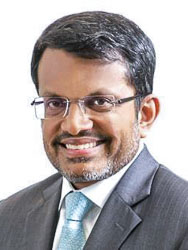
Mr Ravi Menon
Managing Director, Monetary Authority of Singapore
Ravi Menon has been Managing Director of the Monetary Authority of Singapore (MAS) since 2011. The MAS conducts monetary policy, manages the official foreign reserves, supervises the financial sector, and develops Singapore as a financial centre.
On the international front, Mr Menon is a member of the Financial Stability Board (FSB) Steering Committee. He chaired the FSB Standing Committee on Standards Implementation during 2013-2017, the International Monetary and Financial Committee (IMFC) Deputies Meetings during 2011-2015, and the APEC Senior Officials Meetings in 2009.
Mr Menon was Permanent Secretary at the Ministry of Trade & Industry (2007-2011), where he led the ministry’s work in economic strategy; energy policy; research and development; and international trade. Mr Menon was Deputy Secretary at the Ministry of Finance (2003-2007), where he was responsible for fiscal policy and government reserves.
Mr Menon began his career at MAS in 1987. During his 16 years in MAS, he was involved in monetary policy; econometric forecasting; banking regulation and liberalisation; and integrated supervision of complex financial institutions.
A recipient of the Public Administration Medal (Gold), Mr Menon has served on boards in the public, private, and people sectors. He was Chairman of the Singapore Co-operation Enterprise; Deputy Chairman of the Central Provident Fund Board; and a board member of the Housing and Development Board; Singapore Totalisator Board; Agency for Science, Technology, and Research; Civil Service College; and National Research Foundation. He was also on the board of directors of DBS Bank, the largest bank in Southeast Asia. Mr Menon is currently Chairman of the Institute of Banking and Finance, and he serves on the board of trustees of the Singapore Indian Development Association, a community volunteer group.
Mr Menon holds a Master's in Public Administration from Harvard University and a Bachelor of Social Science (Honours) in Economics from the National University of Singapore. A two-time winner of the Prime Minister's Book Prize, Mr Menon was a prefect and scout leader at Raffles Institution where he had his secondary education. -

Professor Franklin Allen
Professor of Finance and Economics and Director of the Brevan Howard Centre at Imperial College London.
Franklin Allen is Professor of Finance and Economics and Director of the Brevan Howard Centre at Imperial College London and has held these positions since July 2014. He was on the faculty of the Wharton School of the University of Pennsylvania from July 1980 – June 2016. He now has Emeritus status there. He was formerly Vice Dean and Director of Wharton Doctoral Programs, Co-Director of the Wharton Financial Institutions Center, Executive Editor of the Review of Financial Studies and Managing Editor of the Review of Finance. He is a past President of the American Finance Association, the Western Finance Association, the Society for Financial Studies, the Financial Intermediation Research Society and the Financial Management Association, and a Fellow of the Econometric Society and the British Academy. He received his doctorate from Oxford University. Dr. Allen's main areas of interest are corporate finance, asset pricing, financial innovation, comparative financial systems, and financial crises. He is a co-author with Richard Brealey and Stewart Myers of the eighth through twelfth editions of the textbook Principles of Corporate Finance.
-
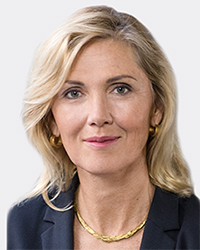
Professor Beatrice Weder di Mauro
Distinguished Fellow-in-residence, Emerging Markets Institute of INSEAD Singapore, Professor of Economics, Chair of Economic Policy and International Macroeconomics, University of Mainz, Germany
Beatrice Weder di Mauro was appointed as the President of CEPR in July 2018. The Centre's President has overall responsibility for CEPR's research programmes, policy outreach, funding and all researcher appointments. She works closely with the Centre's Research Director, Policy Director, Chief Executive Officer, Programme Directors, and CEPR staff to develop new initiatives and sustain existing activities.
Beatrice Weder di Mauro has held the Chair of Economic Policy and International Macroeconomics at the University of Mainz in Germany since 2001 and currently is Distinguished Fellow at the INSEAD Emerging Markets Institute. She has provided high-level policy advice to European governments, the European Commission, several international organizations and various central banks. For eight years she served on the German Council of Economic Experts, the highest advisory body for economic matters. She has been a member of strategic advisory groups for the Swiss and the Austrian governments, led research projects and acted as a consultant for the International Monetary Fund, the World Bank, the European Central Bank, the Deutsche Bundesbank and the OECD and the G20.
She started her academic career at the University of Basel and subsequently worked as economist in the European and the Fiscal Affairs department of the IMF. She held visiting positions at Harvard University, the National Bureau of Economic Research in Cambridge MA, the United Nations University in Tokyo and INSEAD in Singapore. She was named a “Young Global Leader” by the World Economic Forum in 2005 and later chaired the WEF Global Agenda Councils on Fiscal Crisis. She is currently a Senior Fellow of the Asian Bureau of Finance and Economic Research (ABFER) in Singapore and of the Center for International Governance Innovation (CIGI) in Toronto, a trustee of the ETH Foundation in Zurich and a member of the Bellagio Group. Weder di Mauro has served as independent director on the boards of globally leading companies in development finance, pharmaceuticals, technology and insurance. Currently she is a member of the board of Bombardier, Bosch and UBS Group.
Her research addresses policy related questions in international macroeconomics. She has published widely in academic journals, including the American Economic Review, Journal of International Economics, Brookings Papers on Economic Activity, Journal of Public Economics, Journal of Development Economics and Review of Finance. Recent publications have focused on reforms of the euro area, debt sustainability, cross-border banking regulation, financial integration and the global financial architecture.
- 1
Registration
Registration is strictly by invitation and non-transferable. For any enquiries, please contact us at This email address is being protected from spambots. You need JavaScript enabled to view it..
ORGANISED BY
